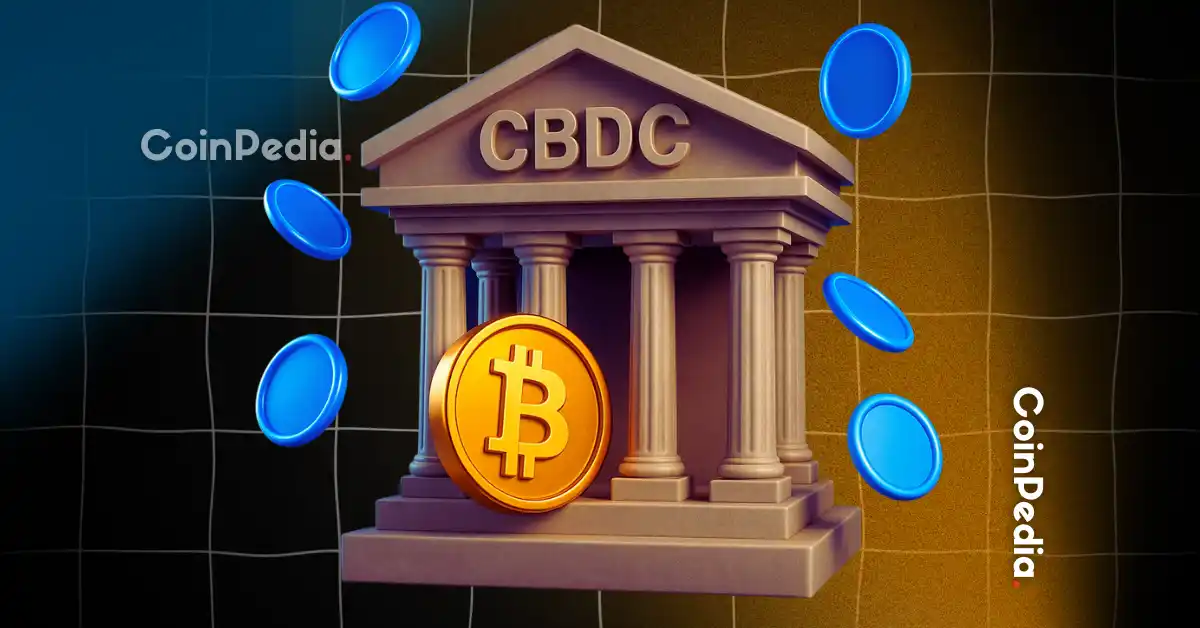
Ripple CTO David Schwartz said CBDCs may offer freedom benefits but have become “kind of irrelevant”.
Schwartz argued CBDCs are positive only if they expand financial options, not restrict them.
He noted the market has already moved beyond government-backed digital currencies toward more open financial models.
Ripple’s Chief Technology Officer, David Schwartz, has sparked a fresh debate around central bank digital currencies (CBDCs) and how they could reshape financial freedom.
It started when Schwartz shared his article “The War on Cash” on X. The post quickly drew attention, especially after a user asked what poses a bigger threat to freedom – the war on cash or CBDCs.
Here’s what he had to say.
“It Depends on How They’re Used”
Schwartz replied with an interesting perspective.
“If a CBDC creates more options for people who want to use it, that’s good. If it becomes an excuse to hamper other options more consistent with individual freedom, that’s bad.”
He added that CBDCs could actually support freedom in some cases, such as giving people access to a government-run banking option when private institutions block them.
But he also admitted the market has largely moved on, noting it’s harder for governments to discriminate secretly than for financial institutions to do so quietly.
In short, Schwartz believes the technology isn’t the problem, but how it’s used.
Ripple’s Growing Role in the CBDC Push
Ripple has already worked with Palau, Bhutan, Montenegro, Georgia, and the U.K. on early digital currency pilots. These efforts helped improve the XRP Ledger (XRPL) so it could handle not just CBDCs, but also stablecoins and tokenized deposits.
That evolution led to RLUSD, Ripple’s dollar-backed token launched on both XRPL and Ethereum. RLUSD’s market cap is now close to $790 million, supported by partnerships with DBS Bank and Franklin Templeton.
The War on Cash: Why Is Schwartz Concerned?
In his essay, Schwartz argued that the “war on cash” has quietly eroded people’s financial independence. Current regulations, he said, push individuals to rely on banks that can terminate accounts without clear reasons.
He compared it to being forced to eat only at approved restaurants – constantly monitored, with no choice to cook at home.
“That is, effectively, what banks are forced to do today,” he wrote.
Public Pushback on CBDCs
While global regulators champion CBDCs, not everyone is convinced.
On Reddit, there are repeated heated discussions that reflect growing public distrust. One user wrote that CBDCs could become “a financial disaster,” citing failed experiments in Finland, Kenya, and Nigeria.
Users voiced fears about privacy loss, government surveillance, and banks losing relevance as the central bank takes control. Others warned about the risk of hacking, economic instability, and job losses in traditional banking.
Will CBDCs bring efficiency and inclusion, or usher in an era of state-controlled finance where every transaction can be tracked and restricted? This is a trend to monitor.
Never Miss a Beat in the Crypto World!
Stay ahead with breaking news, expert analysis, and real-time updates on the latest trends in Bitcoin, altcoins, DeFi, NFTs, and more.
FAQs
A CBDC, or Central Bank Digital Currency, is a digital form of a country’s official currency, issued and regulated by its central bank, not a private financial institution.
CBDCs are not inherently a threat. The risk depends on their design; they can increase freedom by providing more options or decrease it if used to restrict access to cash and private payment methods.
Primary public concerns include the potential for loss of financial privacy, increased government surveillance of spending, and the risk of transaction control or censorship by authorities.
Yes, ideally they would coexist. A well-designed CBDC would serve as an additional payment option without hampering an individual’s ability to use cash or other private financial services.
Trust with CoinPedia:
CoinPedia has been delivering accurate and timely cryptocurrency and blockchain updates since 2017. All content is created by our expert panel of analysts and journalists, following strict Editorial Guidelines based on E-E-A-T (Experience, Expertise, Authoritativeness, Trustworthiness). Every article is fact-checked against reputable sources to ensure accuracy, transparency, and reliability. Our review policy guarantees unbiased evaluations when recommending exchanges, platforms, or tools. We strive to provide timely updates about everything crypto & blockchain, right from startups to industry majors.
Investment Disclaimer:
All opinions and insights shared represent the author's own views on current market conditions. Please do your own research before making investment decisions. Neither the writer nor the publication assumes responsibility for your financial choices.
Sponsored and Advertisements:
Sponsored content and affiliate links may appear on our site. Advertisements are marked clearly, and our editorial content remains entirely independent from our ad partners.








